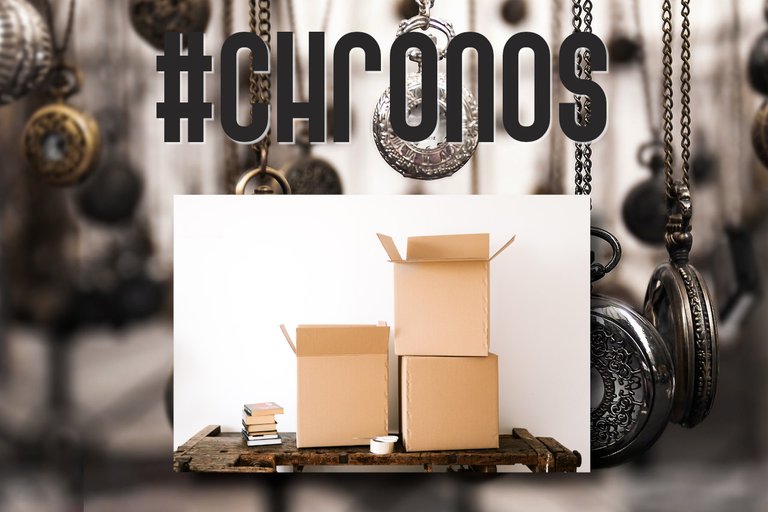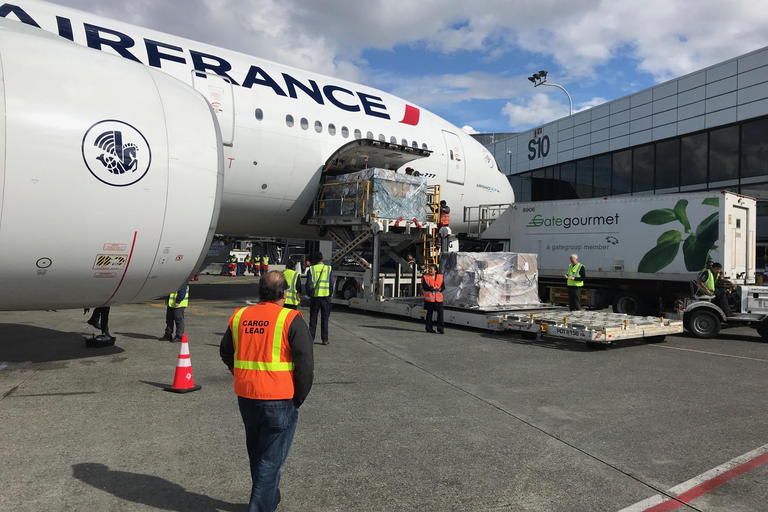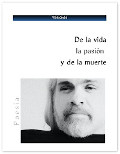
Cuando nos fuimos a Europa en 1969, en parte significaba una ayuda para mi padre, quien había sido víctima de persecución política y por esas mismas razones le habían restringido sus opciones laborales. Por lo tanto, ir al extranjero en calidad de corresponsal, le abrió las puertas a muchas opciones que habían estado cerradas.
English version below!
Vivir detrás de la llamada “cortina de hierro” era lo suficientemente novedoso y atractivo como para que distintos medios de comunicación se interesaran en sus reportajes. Todo esto le trajo a la familia la tranquilidad y estabilidad económica que mi padre ansiaba poder brindar.
Fueron casi siete años, primero en Alemania y luego en la Unión Soviética, en los que realmente se construyó un hogar, con todo y sus “utensilios”. Viajar en tren facilita mucho las cosas y los costos, por lo cual, cuando nos mudamos en 1973 de Berlín a Moscú, nos llevamos la mayor parte de las adquisiciones hechas por la familia.
Durante todos esos años mi papá llegó a los lugares más recónditos de la geografía de ambos países, incluyendo muchas de la ciudades “secretas” que habían principalmente en la URSS, donde se concentraban los científicos y ciudades de carácter estratégico.
Además de eso, como familia, es decir todos juntos, aprovechamos todas las vacaciones para recorrer parte del viejo continente, en más de una ocasión. Así llegamos a la “otra” Alemania, a Checoslovaquia, Hungría, Austria, Suiza e Italia.
Mi padre siempre fue un amante de la fotografía y solía tener las más avanzadas cámaras para su tiempo. Aunque él no era un reportero gráfico, tenía una documentación única de todos esos años.
Por supuesto, siete años con esas características, nos dejaron unas posesiones y recuerdos excepcionales, abundantes y muy significativos. Por lo tanto, al plantearnos el regreso a nuestra patria Venezuela, en 1975, teníamos un gran dilema: ¿qué traer y qué dejar? Particularmente tomando en cuenta que en Venezuela no teníamos absolutamente nada.
Así que en un gran esfuerzo, mi padre logró negociar una mudanza, en la cual vendrían 13 cajas por barco (el medio más económico), entre las cuales venía hasta un piano vertical alemán. Estas cajas tardarían cerca de tres meses en llegar. Por esta misma razón mi padre tomó la decisión de traernos las pertenencias más valiosos y apreciadas, en una carga especial por avión. Para esto seleccionamos todas las cosas que más valor sentimental tenían para nosotros, como lo eran las innumerables fotografías de esos últimos siete años, cubiertería de plata y todo eso que “más queríamos”. Esta carga “más valiosa” viajaría en una caja que traería 100 kilos de recuerdos, memorias y afectos.
Finalmente, llegó el día de la partida y el 25 de octubre llegamos a Caracas, con todas las alegrías y emociones respectivas, cargados de ilusiones y expectativas. Provisionalmente nos separamos para vivir en casa de otros familiares, mientras conseguíamos nuestra propia vivienda.
Ya sabíamos que la carga mayor se tardaría, pero la carga aérea debía estar en tres días en el aeropuerto. Sin embargo, Air France, que era la línea responsable de ese transporte, nos notificó que habría un pequeño retraso. Ese retraso empezó a extenderse, ante lo cual mi padre, con su característica paciencia y su buena disposición y ánimo, nos fue tranquilizando mientras iba una y otra vez al aeropuerto. Entre las múltiples tareas que le pusieron a mi padre en la línea aérea, le pidieron que llenara una lista con los objetos que venían en la caja. Esta última solicitud terminó de desatar nuestra preocupación. Aún así nos sentamos y anotamos todas las cosas que recordamos que venían en ese cargamento.
Finalmente se confirmó la peor de nuestras sospechas, cuando la empresa francesa nos informó que la carga se había perdido, dicho en una expresión bastante curiosa:
- El cargamento salió del aeropuerto de Orly, en París, pero nunca llegó al de Maiquetía, el de Venezuela.
Lo extraño es que es difícil creer que la carga se haya salido del avión en pleno vuelo, pues si salió de un punto y no llegó al otro, ese sería el razonamiento lógico. Pero el planteamiento era demasiado complejo para el entendimiento del personal de la aerolínea, quienes entendieron el cuestionamiento como una ofensa.
A pesar de los comedidos pero enérgicos reclamos de mi padre, no se pudo hacer nada. Finalmente los encargados de la línea citaron a mi padre y luego de excusarse una vez más por el “inconveniente” le entregaron un cheque, que compensara la pérdida.
En resumidas cuentas, ellos leyeron la lista que les elaboramos y establecieron que todos nuestros objetos tenían un valor determinado y ese monto lo escribieron sobre un papel intercambiable por dinero en los bancos… ¡determinaron, pues, el precio de nuestros recuerdos!
En su actitud tan positiva, con la cual mi padre siempre se enfrentó a las adversidades, mi padre compró con ese cheque un horno de microondas e invitó a la familia a un restaurante, para disfrutar de lo bonito que es tener una familia muy unida que siempre supo vivir al máximo la experiencia de ser una familia cargada de mucho amor.
En el interín de esta historia mi padre ya había alquilado un apartamento para nosotros, la carga marítima había llegado a salvo y luego de un buen almuerzo y un nuevo microondas, seguimos adelante con nuestra vidas.


English version
When we went to Europe in 1969, it was partly a help to my father, who had been a victim of political persecution and for those same reasons had been restricted in his work options. Therefore, going abroad as a correspondent opened the doors to many options that had been closed to him.
Living behind the so-called "iron curtain" was sufficiently novel and attractive for different media outlets to be interested in his reporting. All this brought the family the peace of mind and economic stability that my father longed to provide.
It took almost seven years, first in Germany and then in the Soviet Union, to really build a home, with all its "utensils". Traveling in Europe by train made things and costs much easier, so when we moved in 1973 from Berlin to Moscow, we took most of the acquisitions made by the family with us.
During all those years my dad went to the most remote places of the geography of both countries, including many of the "secret" cities that were mainly in the USSR, where were concentrated the scientists and cities of strategic character.
Besides that, as a family, that is to say, all together, we took advantage of all the vacations to travel part of the old continent, on more than one occasion. Thus we reached the "other" Germany, Czechoslovakia, Hungary, Austria, Switzerland and Italy.
My father was always a lover of photography and used to have the most advanced cameras for his time. Although he was not a photojournalist, he had a unique documentation of all those years.
Of course, seven years with those characteristics, left us with exceptional, abundant and very significant possessions and memories. Therefore, when we decided to return to our homeland Venezuela in 1975, we had a great dilemma: what to bring and what to leave? Particularly taking into account that in Venezuela we had absolutely nothing.
So, in a great effort, my father managed to negotiate a move, in which 13 boxes would come by ship (the cheapest way), including a German upright piano. These boxes would take about three months to arrive. For this very reason my father made the decision to bring us the most valuable and appreciated belongings in a special cargo by plane. For this we selected all the things that had the most sentimental value for us, such as the countless photographs of the last seven years, silverware and all that we "loved the most". This "most valuable" cargo would travel in a box that would bring 100 kilograms of souvenirs, memories and affections.
Finally, the day of departure arrived and on October 25 we arrived in Caracas, with all the respective joys and emotions, full of illusions and expectations. Provisionally we separated to live with other relatives, while we were getting our own house.
We already knew that the major cargo would take some time, but the air cargo had to be at the airport in three days. However, Air France, which was the airline responsible for that transport, notified us that there would be a slight delay. That delay began to extend, to which my father, with his characteristic patience and his good disposition and encouragement, reassured us as he went again and again to the airport. Among the many tasks my father was given at the airline, he was asked to fill out a list of the items that came in the box. This last request ended up unleashing our concern. We still sat down and wrote down all the things we remembered were in that shipment.
Finally the worst of our suspicions were confirmed, when the French company informed us that the cargo was lost, said in a rather curious expression:
- The cargo left Orly airport in Paris, but never arrived at Maiquetia airport in Venezuela.
The strange thing is that it is hard to believe that the cargo left the plane in mid-flight, because if it left from one point and did not arrive at the other, that would be the logical reasoning. But the approach was too complex for the airline staff to understand, and they took the questioning as an offense.
Despite my father's measured but energetic complaints, nothing could be done. Finally, the airline managers summoned my father and after apologizing once again for the "inconvenience", they gave him a check to compensate for the loss.
In short, they read the list we had prepared for them and established that all our objects had a certain value and that amount was written on a piece of paper that could be exchanged for money in the banks... they determined, then, the price of our memories!
In his very positive attitude, with which my father always faced adversities, my father bought with that check a microwave oven and invited the family to a restaurant, to enjoy the beauty of having a very united family that always knew how to live to the fullest the experience of being a family full of love.
In the interim of this story my father had already rented an apartment for us, the sea cargo had arrived safely and after a good lunch and a new microwave oven, we moved on with our lives.
| Crónicas previas // Previous Chronicles |
|---|
| Teatro, viajes y un nombre / Theater, trips and a name (2) |
| Catia y el azul / Catia and the blue (1) |

Este texto pertenece a mi serie #Chronos. Puedes leer más sobre la misma en Mis crónicas literarias. Si es de tu agrado este estilo y quieres sumarte a la creación de crónicas literarias, te invito a usar la etiqueta #chronos para la misma.
This writing is part of my series #Chronos. You can read more about it on My literary chronicles. If you like this style and want to join the creation of literary chronicles, I invite you to use the hashtag #chronos for it.

Descarga el poemario de @Ylich"De la vida, la pasión y de la muerte"¡Haz clic aquí! |  |
|---|

If you don't have an account at Hive yet, I invite you to read my post My Hive Testimony || Mi testimonio Hive
Si aún no tienes cuenta en Hive te invito a leer mi publicación My Hive Testimony || Mi testimonio Hive

Congratulations @ylich! You have completed the following achievement on the Hive blockchain and have been rewarded with new badge(s) :
Your next target is to reach 5500 replies.
You can view your badges on your board and compare yourself to others in the Ranking
If you no longer want to receive notifications, reply to this comment with the word
STOPNuestras coordenadas:
¡Muchísimas gracias por la valoración!